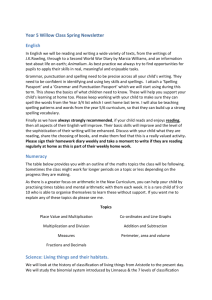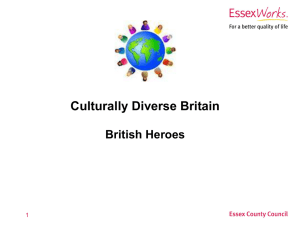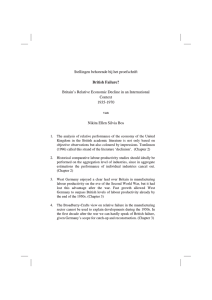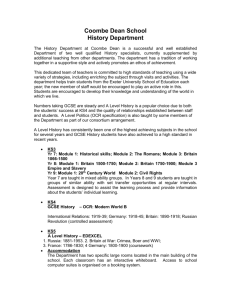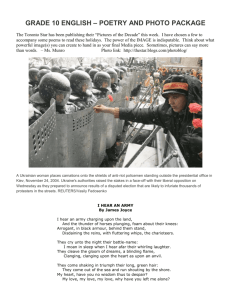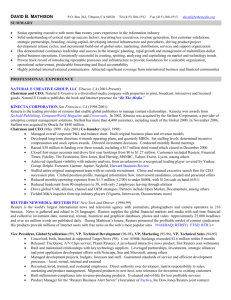NAME: COURSE: GLOBAL ENGLISH The global English of our
advertisement
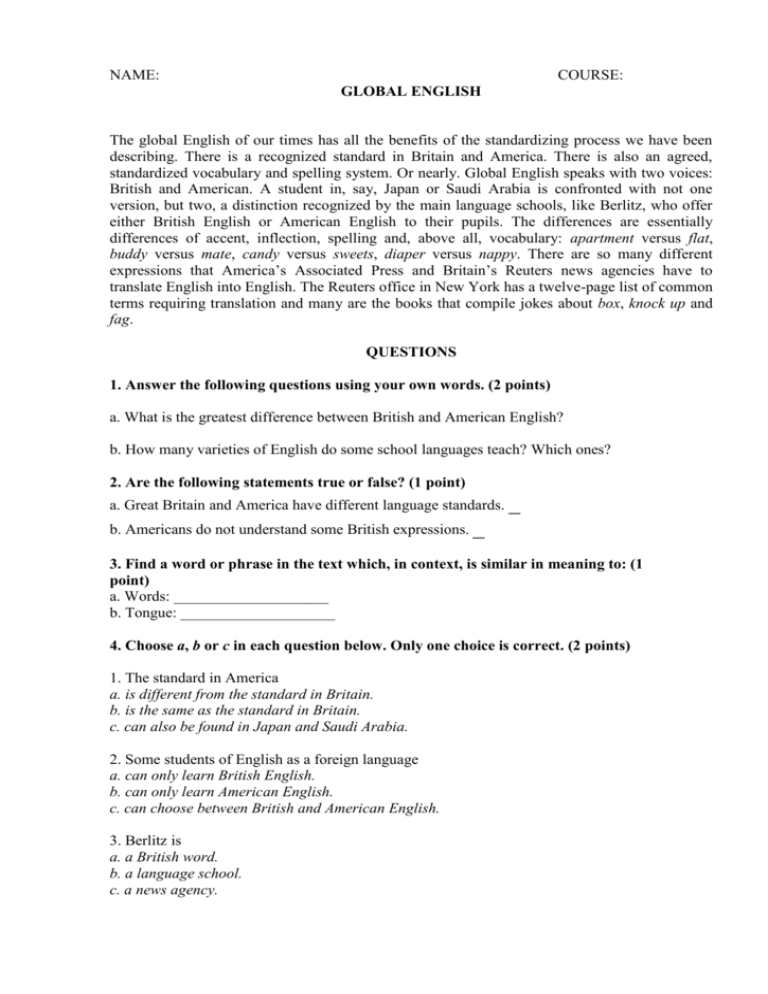
NAME: COURSE: GLOBAL ENGLISH The global English of our times has all the benefits of the standardizing process we have been describing. There is a recognized standard in Britain and America. There is also an agreed, standardized vocabulary and spelling system. Or nearly. Global English speaks with two voices: British and American. A student in, say, Japan or Saudi Arabia is confronted with not one version, but two, a distinction recognized by the main language schools, like Berlitz, who offer either British English or American English to their pupils. The differences are essentially differences of accent, inflection, spelling and, above all, vocabulary: apartment versus flat, buddy versus mate, candy versus sweets, diaper versus nappy. There are so many different expressions that America’s Associated Press and Britain’s Reuters news agencies have to translate English into English. The Reuters office in New York has a twelve-page list of common terms requiring translation and many are the books that compile jokes about box, knock up and fag. QUESTIONS 1. Answer the following questions using your own words. (2 points) a. What is the greatest difference between British and American English? b. How many varieties of English do some school languages teach? Which ones? 2. Are the following statements true or false? (1 point) a. Great Britain and America have different language standards. _ b. Americans do not understand some British expressions. _ 3. Find a word or phrase in the text which, in context, is similar in meaning to: (1 point) a. Words: ____________________ b. Tongue: ____________________ 4. Choose a, b or c in each question below. Only one choice is correct. (2 points) 1. The standard in America a. is different from the standard in Britain. b. is the same as the standard in Britain. c. can also be found in Japan and Saudi Arabia. 2. Some students of English as a foreign language a. can only learn British English. b. can only learn American English. c. can choose between British and American English. 3. Berlitz is a. a British word. b. a language school. c. a news agency. 4. Some English words at Reuters a. have to be translated into English. b.cannot be translated. c. have to be translated into another language. 5. Composition. Differences between mother language and foreign language. (4 points)


